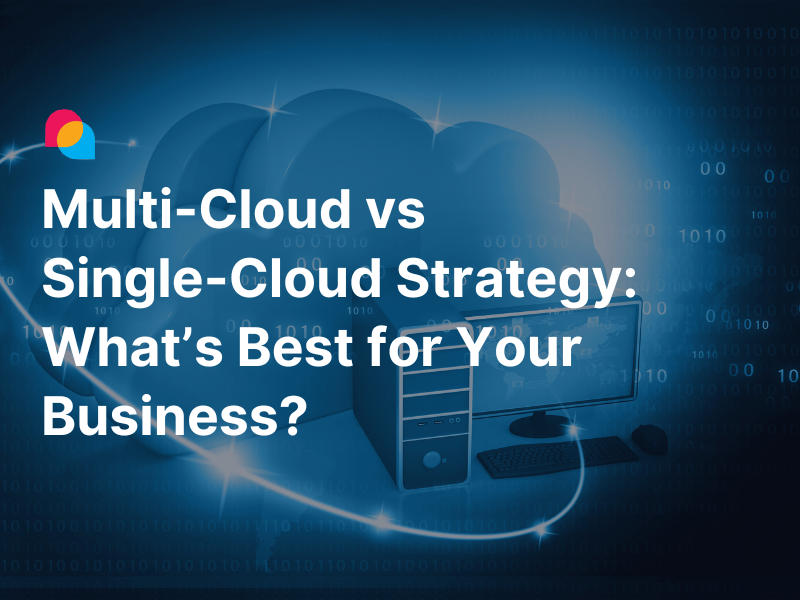In today's fast-paced and technology-driven world, small businesses face the constant challenge of staying competitive and efficient. The advent of innovative software solutions has emerged as a beacon of transformation, offering small businesses the tools they need to thrive in the digital age. These solutions not only streamline operations but also open doors to new opportunities, enabling small enterprises to compete on a level playing field with larger corporations.
Understanding the landscape of software solutions is the first step towards harnessing their power. From cloud computing to mobile applications, the variety of tools available can be overwhelming. However, with the right approach, small businesses can identify and implement solutions that not only address their immediate needs but also pave the way for future growth.
Assessing Your Business's Software Needs
Before diving into the vast sea of software solutions, it's crucial to assess your business's specific needs. Identifying inefficiencies within your operations is a step towards targeted solutions that can address those gaps. Whether it's time-consuming manual tasks, disjointed communication channels, or inadequate customer data management, recognizing these issues allows you to seek out software solutions designed to tackle these problems effectively.
Mapping out your business processes provides a blueprint for software integration. This exercise not only highlights areas of improvement but also ensures that any adopted solution seamlessly fits into your existing operations, enhancing productivity without disrupting workflows.

Core Software Solutions for Small Businesses
Financial Management Tools: Streamlining Accounting and Budgeting
At the heart of any thriving enterprise lies robust financial management. For small businesses, navigating the intricacies of accounting and budgeting without the aid of sophisticated software can be daunting. Financial management tools have revolutionized this arena, offering functionalities that transform traditional, labor-intensive financial tasks into streamlined, automated processes. Automating payroll, for instance, eliminates the arduous manual computation of hours worked, taxes, and benefits, thereby reducing the margin for error and freeing up valuable time for strategic decision-making. Similarly, software solutions for invoicing not only expedite the billing process but also enhance the accuracy and professionalism of financial transactions.
Moreover, the provision of comprehensive insights into a company's financial health through advanced budget tracking and forecasting tools is invaluable. These systems enable small businesses to anticipate financial trends, manage cash flow more effectively, and make informed decisions that align with their long-term strategic goals. The ability to visualize financial data through user-friendly dashboards and reports further demystifies financial management, making it accessible to business owners who may not have a background in finance.
The variety of financial management software available today, such as QuickBooks, Xero, and FreshBooks, offer comprehensive solutions that encompass everything from accounting and invoicing to payroll and expense tracking. These tools are designed to cater to the unique needs of small businesses, providing them with the capabilities to manage their finances more effectively, ensure compliance, and foster sustainable growth.
Customer Relationship Management (CRM) Systems: Cultivating Meaningful Connections
In today’s market, the ability to maintain and nurture customer relationships is paramount. CRM systems represent a pivotal shift in how small businesses engage with their clientele, providing a centralized repository of customer information that facilitates personalized service and fosters loyalty. The power of CRM analytics cannot be overstated; by analyzing customer interactions and behavior, businesses can unearth valuable insights that drive strategic marketing efforts and product development.
Wells Fargo, for example, has leveraged its CRM system to save hundreds of nonproductive hours in IT and business, reducing technical debt and fostering innovation and growth. This case exemplifies how CRM systems can streamline operations and enhance productivity. Similarly, Activision has used CRM to monitor social media conversations relevant to their products and follow up on these conversations efficiently, reducing customer service operating expenses by 25%.
CRM software benefits small businesses by offering a centralized database of customer information, which simplifies the sales and marketing processes. It helps in nurturing leads and supporting customers throughout the sales and marketing funnels.
Read Also: How to build an effective CRM system from scratch
Inventory Management Software: Optimizing Stock Levels and Order Fulfillment
The optimization of inventory management is a critical concern for businesses, particularly those in the retail and manufacturing sectors. Inventory management software addresses this need by offering features such as real-time tracking, automated reorder alerts, and seamless integration with sales and purchase order systems. These functionalities ensure that businesses maintain optimal stock levels, minimizing the risk of overstocking or stockouts and thereby safeguarding against lost sales and unsatisfied customers.
Boosting Productivity with Software Solutions Tools
Leveraging Marketing Automation for Growth
Marketing automation software has emerged as a transformative force for small businesses, redefining their approach to marketing and customer engagement. By automating tasks such as email campaigns and social media management, these platforms enable businesses to reach their audience with the right message at the right time, without the need for constant manual intervention. The use of analytics for crafting targeted marketing strategies further enhances the ability of businesses to understand and respond to customer needs and preferences, facilitating personalized communication that resonates with the audience.
The adoption of marketing automation technologies is driven by their capacity to generate new leads, nurture prospects, and close deals more effectively. For instance, companies utilizing marketing automation are more likely to capture intelligence for the sales team and customize content to the buyer journey stages, leading to a more targeted and effective marketing approach. Furthermore, the 2021 state of business automation report by Zapier highlights that automation is essential for small and medium-sized businesses, enabling them to quickly pivot in response to the pandemic and compete with larger companies by moving faster, providing better customer support, and reducing human error.
Read Also:
Enhancing Operational Efficiency with Workflow Automation Software
Workflow automation stands as a game-changer in the quest for operational excellence. By automating routine tasks and processes, small businesses can allocate their resources more strategically, focusing on core activities that contribute to growth and innovation. Tailoring workflows to meet specific business needs ensures a smooth operation, minimizing delays, reducing bottlenecks, and virtually eliminating manual errors.
The adoption of workflow automation not only bolsters the bottom line by improving operational efficiency but also has a profound impact on employee satisfaction. Freed from the tedium of repetitive tasks, employees can engage in more meaningful work that leverages their skills and creativity, leading to higher job satisfaction and productivity.
Data Security and Protection: Safeguarding Your Business
In an era where data breaches are increasingly common, ensuring the security and protection of business data is paramount. Software solutions dedicated to data encryption and backup are essential for safeguarding sensitive information. Moreover, compliance with data protection regulations is critical for maintaining customer trust and avoiding legal repercussions. Investing in sophisticated security software solutions serves to protect the business from cyber threats while enhancing its reputation as a dependable entity.
Integration and Scalability: Building a Cohesive Software Ecosystem
As small businesses grow, the need for a cohesive software ecosystem becomes increasingly important. Ensuring software compatibility and seamless integration across different tools and platforms allows for a more streamlined and efficient workflow. Scalable software solutions are essential for expanding businesses, enabling them to adapt to increased demands without sacrificing performance or reliability. Preparing for expansion means selecting software that satisfies present needs while also considering potential future needs.

Cloud Computing: The Backbone of Modern Software Solutions
Cloud computing stands as the cornerstone of modern software solutions, democratizing access to technology that was once the exclusive domain of large corporations. By leveraging cloud-based software, small businesses gain the flexibility to scale their operations, the efficiency of reduced IT costs, and the agility to adapt to market demands in real time. The transition to the cloud eliminates the need for substantial hardware investments and ongoing maintenance, significantly lowering operational expenses and enabling businesses to allocate their resources more strategically.
Airbnb's migration to Amazon Web Services (AWS) is a success story, demonstrating how cloud computing can support rapid scale and flexibility. By moving nearly all of its cloud computing functions to AWS, Airbnb was able to enhance its growth exponentially without the limitations of service issues experienced with their original provider. The ease of scaling up servers on AWS played a crucial role in this acceleration.
The selection of a cloud service provider is a critical decision, requiring careful consideration of the provider's alignment with the business's specific needs, reliability, and support services. A provider that offers scalable solutions and robust support ensures that small businesses can fully harness the potential of cloud computing, enabling them to grow and adapt in an ever-evolving marketplace.
Measuring Success: Analytics and Performance Indicators
The effectiveness of software solutions can be measured through various analytics and performance indicators. Key performance indicators (KPIs) specific to the software solution in use, such as increased productivity, reduced costs, or improved customer satisfaction, provide tangible metrics for assessing success. Utilizing software analytics helps in continuous improvement, offering insights into usage patterns, identifying areas for optimization, and measuring progress towards business objectives. This data-driven approach ensures that businesses can make informed decisions about future investments in technology.
Case Studies: Small Businesses Transformed by Software Solutions
The journey of digital transformation is illuminated by the success stories of small businesses that have harnessed software solutions to revolutionize their operations. These stories highlight how technology can revolutionize operations, enhance customer experiences, and drive significant business growth.
Tesla's Over-the-Air Updates: Tesla has redefined automotive technology by introducing over-the-air (OTA) updates, allowing vehicles to remotely improve their safety, performance, and infotainment capabilities. This approach not only saves time and money for consumers but also significantly reduces carbon emissions. Tesla's data-driven strategies, including collecting driving data to analyze demand trends and common complaints, have led to substantial business growth, with vehicle deliveries increasing by 87% in 2021 compared to the previous year. (whatfix)
Choosing the Right Software Solutions Provider
A survey by Gartner indicates that small businesses prioritize providers who demonstrate a deep understanding of their industry and offer scalable solutions.
Selecting the right software solutions provider is a critical decision for small businesses embarking on their digital transformation journey. The criteria for making this choice should extend beyond cost to include factors such as the provider's reliability, support services, security measures, and the ability to meet the business's specific needs. Small businesses should seek providers who offer comprehensive ongoing service and support, ensuring that any issues can be promptly addressed and that the software can evolve in line with the business's growth. Additionally, the provider's track record with similar small businesses can offer valuable insights into their suitability.
Financing Software Investments: Options for Small Businesses
Financing the adoption of new software solutions is a significant consideration for small businesses. Understanding the costs involved and budgeting for software solutions are the first steps. Many businesses may not have the upfront capital required for large investments in technology. Exploring financing options, such as loans, leases, or software-as-a-service (SaaS) models, can provide the flexibility small businesses need to invest in essential software solutions.
Furthermore, grants for technology upgrades, often available from government or industry associations, can significantly reduce the financial burden on small businesses, enabling them to leverage technology for growth. The SBA, for instance, offers grants that have helped countless small businesses integrate cutting-edge software solutions, reducing the barrier to digital entry.
Overcoming Challenges: Implementation and Adoption of New Software
The adoption of new software solutions, while beneficial, is not without its challenges. Seamless integration with existing systems, effective training for employees, and fostering a culture of adaptability are essential components of a successful implementation strategy. Best practices in this context include comprehensive planning, transparent communication about the benefits and changes introduced by the new software, and robust support and training for employees.
Encouraging the adoption of new technologies among employees involves demonstrating the tangible benefits these tools bring to their daily tasks and the overall business. By aligning the software's capabilities with the company's objectives and employees' needs, businesses can facilitate a smoother transition, enhance user engagement, and maximize the return on their technological investments.
The Road Ahead: Emerging Trends in Business Software Solutions
The landscape of business software solutions is continually evolving, with several emerging trends poised to redefine how small businesses operate:
- Artificial Intelligence (AI) and Machine Learning (ML): AI and ML are increasingly being integrated into business software, offering small businesses the ability to automate complex processes, gain deeper insights into their operations, and enhance customer experiences.
- Sustainability and Eco-Friendly Software Solutions: As global awareness of environmental issues grows, there is a growing trend towards sustainability in business operations. Software solutions that help businesses reduce their environmental impact, through efficient resource management or reduced energy consumption, are becoming increasingly popular.
- Remote Work and Collaboration Tools: The shift towards remote work has accelerated the need for effective collaboration and productivity tools, making software solutions that support remote teams more essential than ever.
- The Future is Mobile, Mobile Solutions for Business On-the-Go: The rise of mobile technology has ushered in a new era of business management. Mobile solutions enable business owners and employees to stay connected and productive, regardless of their location. From mobile apps designed for business management to those that enhance customer engagement, the importance of mobile-friendly solutions cannot be overstated. In today's market, where flexibility and responsiveness are key competitive advantages, embracing mobile technology is essential for any business looking to stay ahead.
Conclusion: The adoption of innovative software solutions offers small businesses a strategic advantage, enabling them to operate more efficiently, engage with customers more effectively, and adapt to t he changing business landscape. This article has explored the critical role of software solutions in driving small business efficiency, from foundational tools for financial management and customer relationship management to emerging trends like AI, ML, and sustainability-focused technologies.
Reflection: Navigating the Future with Confidence
As small businesses continue to navigate the complexities of the digital age, the journey of continuous improvement through innovative software solutions is ongoing. The role of small businesses in shaping the future of digital solutions is significant; by adopting and adapting these technologies, they not only enhance their own efficiency and competitiveness but also contribute to the broader evolution of business practices.
The strategic use of software solutions enables small businesses to not only survive in today's digital economy but to thrive. By embracing digital innovation, small businesses can unlock new opportunities, improve their operations, and secure their place in the future of business. With the right approach, the journey towards digital transformation can be both rewarding and transformative, empowering small businesses to achieve their goals and drive forward with confidence.
References:
4 Examples of Businesses Using CRM to Improve Productivity and Efficiency - Salesforce
11 Benefits of CRM Systems - Business News Daily
8 Examples of Innovative Digital Transformation Case Studies - whatfix





